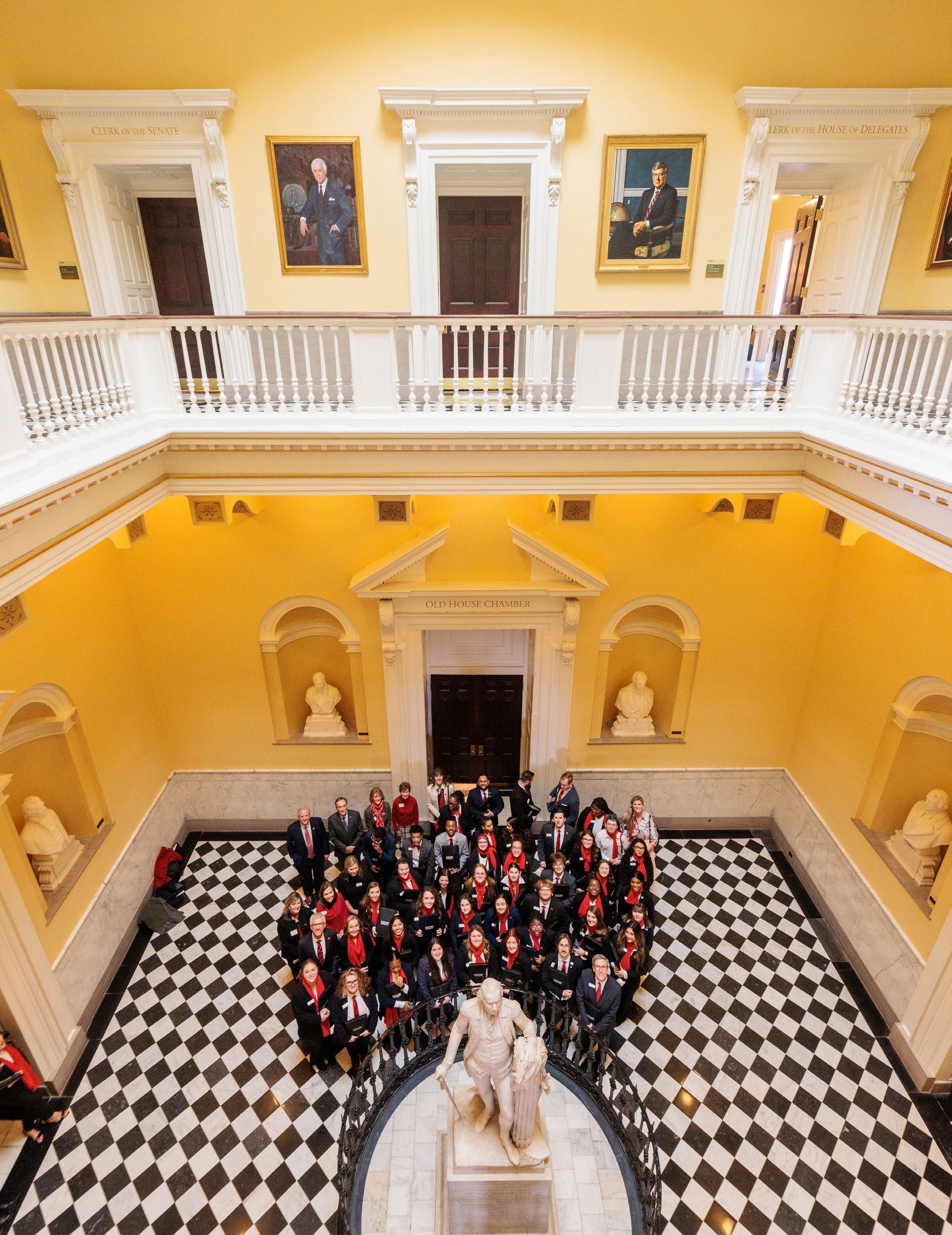
7 minute read
25 Years of Advocacy Day
Each January, a group of Radford University students embark on a journey to Richmond, the heart of Virginia’s government. There, they don’t just observe the legislative process – they participate in it.
For 25 years, Radford University’s Advocacy Day has given students a unique opportunity to engage with lawmakers, advocate for their university and gain hands-on experience in state governance. This has turned into one of the longest-running experiences of its kind among public institutions in the Commonwealth.
Karen Casteele ’79, the current secretary to the Radford University Board of Visitors, remembers when it all began.
“I started at Radford in Government Relations, and on my first day, I told my then-boss, Vice President David Burdette, that we needed to get students to Richmond,” she said. The concept was simple but powerful: Who better to advocate for the university than the students who directly benefit from its programs and initiatives?
Advocacy Day was born from this idea. The event serves multiple purposes: elevating Radford University’s reputation, advancing its legislative agenda and providing students with hands-on experience in advocacy and networking. The event has evolved over the years, but its core mission remains the same.
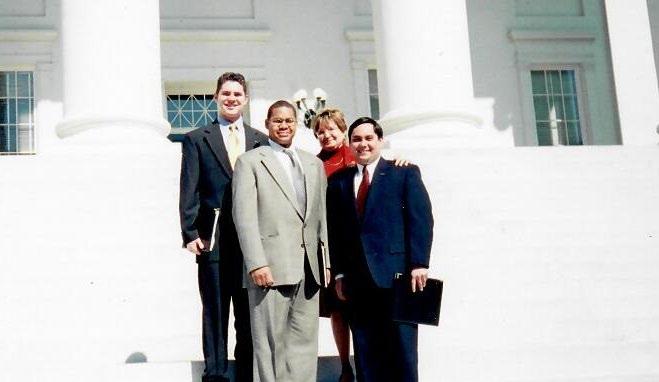
The advocacy experience
Sponsored by Radford’s Student Government Association (SGA), Advocacy Day gives students the chance to meet one-on-one with members of the Virginia General Assembly. Over the course of two days, students have small group meetings with individual delegates and senators, and opportunities to observe the legislative session from the gallery.
For many students, this immersive experience is transformative.
Among the first to experience this groundbreaking event was George Mendiola Jr. ’00, MBA ’02, who attended the inaugural Advocacy Day and currently serves as a member of the university Board of Visitors. He vividly remembers the excitement of representing Radford University at the state capitol. “Radford Advocacy set a new standard, significantly influencing the General Assembly’s understanding of its institutions of higher education,” he said. “Effective governance relies on listening to the voices of those it serves. We emphasized that every dollar invested has a lasting impact, benefiting future generations long after legislators have moved on,” he said.
For Mendiola, this was more than just a trip to Richmond; it was the beginning of a passion for advocacy that would shape his future.
His participation in the first Advocacy Day laid the foundation for what has now become a quarter-century tradition. His experience echoes Casteele’s sentiments– students advocating for their university create a powerful, personal connection with lawmakers.
In one instance, after advocating to mandate the appointment of a nonvoting student member to the BOV, Mendiola learned lawmakers passed the legislation. “While others had advocated for this legislation, as far as we knew, no one had physically sat with legislators during the session to share our perspectives. It showed us that our presence and voices mattered more than we realized,” Mendiola said. His experience, like that of many other Advocacy Day alumni, shows how deeply the event has influenced generations of Radford students.
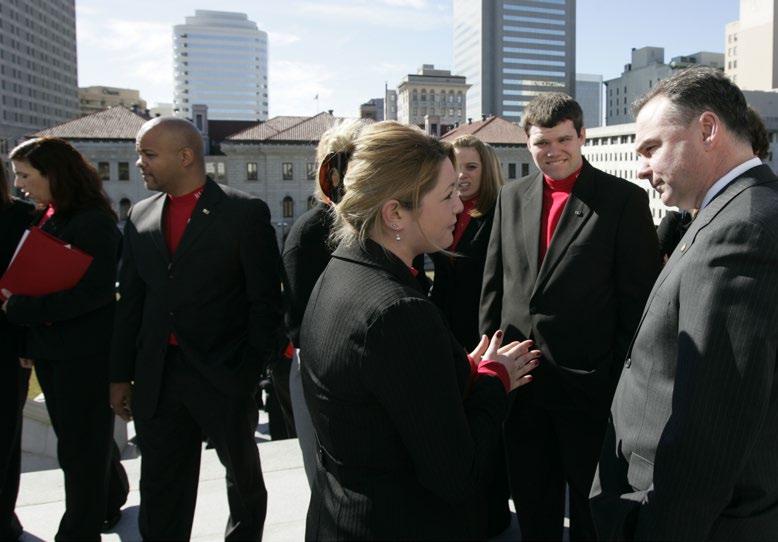
Colleen McNickle ’20, M.S. ’22, who attended the event five times, reflects on how Advocacy Day shaped her career path. Meeting fellow alumni like Denia Rauls ’18, who had already secured a legislative assistant position shortly after graduation, showed her that a job in government was a real possibility. “That impacted me because I was approaching my undergrad graduation and I saw that she had already landed on her feet working in state government,” McNickle said.
Advocacy Day, for her, represented a blend of personal growth and community-building. “Getting students involved in lobbying for their school not only gives students a heightened sense of community but also gives them their first exposure to the legislative process. Investing in students that way pays dividends for the school as well,” she said.
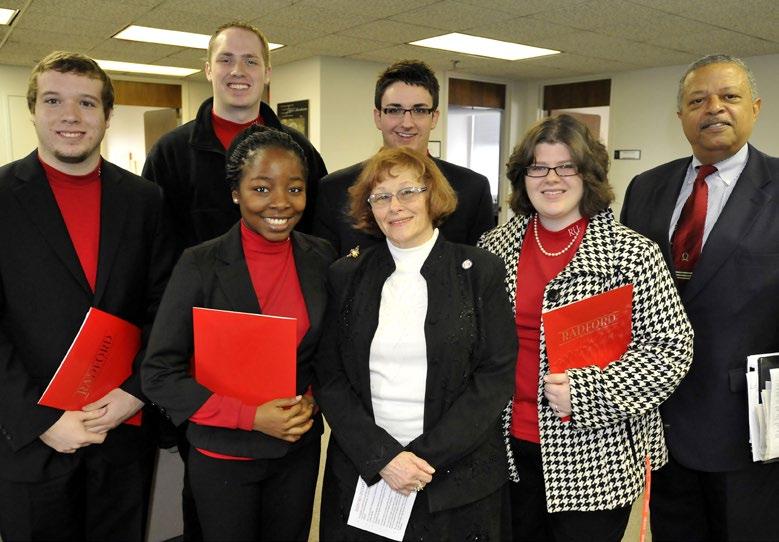
McNickle went on to double major in media studies and political science and later based her graduate thesis on female politicians. Today, she works in government relations, a career path she credits to her experiences during Advocacy Day.
Jessica Wollmann-Reynolds ’19 echoes the sentiment that Advocacy Day strengthens the Radford community and its ties to state lawmakers.
“Advocacy Day allows students to personalize Radford to lawmakers in a way that might influence their decisions about higher education in our region,” Wollmann-Reynolds said.
As a former student representative to the Board of Visitors and a leader in Radford’s SGA, she saw Advocacy Day as an opportunity to deepen her already strong involvement in the university community. “Even if we only had five minutes with a lawmaker, I was always impressed by the attentiveness they showed us,” she said.
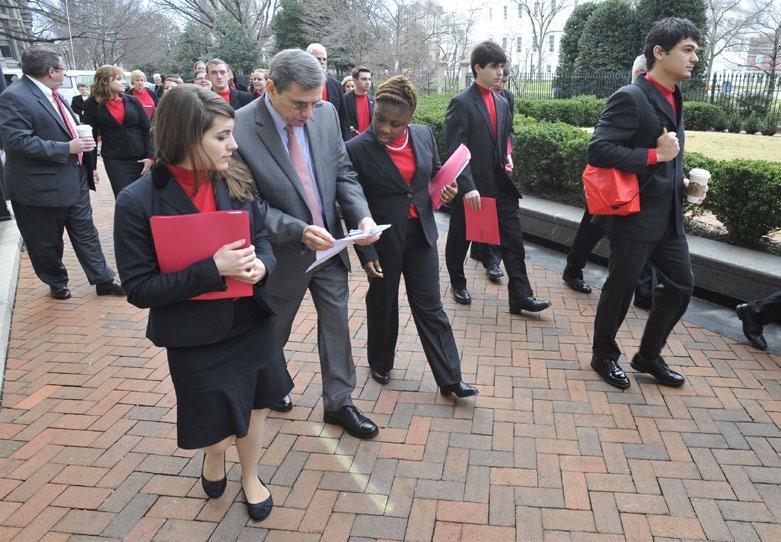
The lasting impact of Advocacy Day
Over the years, Radford’s students have advocated for various university priorities, from building renovations to increased state funding of student aid. In many cases, they have seen the direct results of their efforts.
McNickle, for example, recalls lobbying for support for the Artis Center for Adaptive Innovation and Creativity during her time as a student. Today, that building is a reality. “That is such a remarkable experience for a college student to get to have,” she said. “I also think statewide, we set the trend of having Advocacy Day and now all of these young people are getting involved in the government process in Virginia on behalf of their schools,” she said.
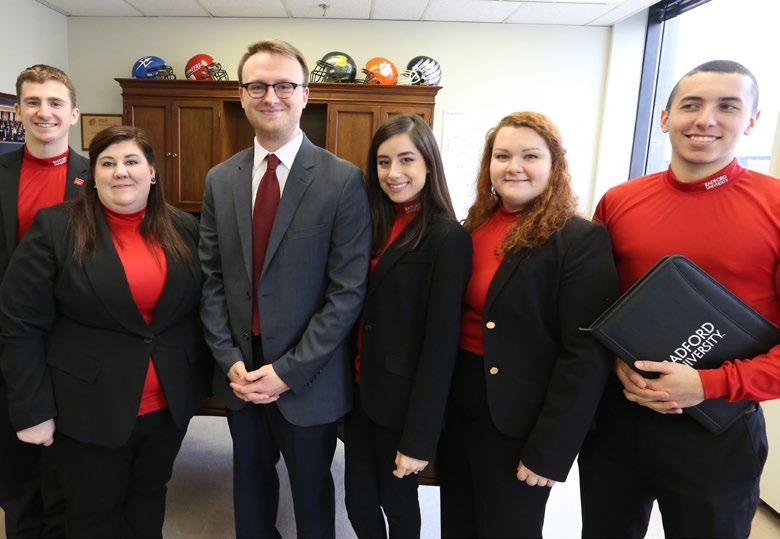
Beyond individual successes, the relationships built during Advocacy Day have had a lasting impact on the university. “Advocacy Day ensures that Radford is remembered when decisions about higher education are being made in the Virginia legislature,” said Wollmann-Reynolds. “I hope it reminds legislators of the concerns and priorities university students actually have and that they take those thoughts into their lawmaking.”
Casteele emphasizes that these relationships are built on consistency. “When we walk into meetings with legislators, they remember us from the year before,” she said. “That continuity is key. It helps us advocate more effectively for the university.”
What students can expect
Advocacy Day is more than just meetings—it’s a comprehensive learning experience that begins weeks before the trip to Richmond. Students selected to participate attend three mandatory training sessions where they learn about the structure of Virginia’s government, the issues they’ll be advocating for and the proper etiquette for interacting with lawmakers. They also develop their personal narratives, which they use to explain why Radford University matters to them and why it deserves the continued support of the state.
“We might only have five or 10 minutes with a legislator, but in those few minutes, we have to make an impression,” said Wollmann-Reynolds. In addition to individual meetings with legislators, students have the chance to observe floor debates, tour historic government buildings, and attend networking events with alumni and state officials.
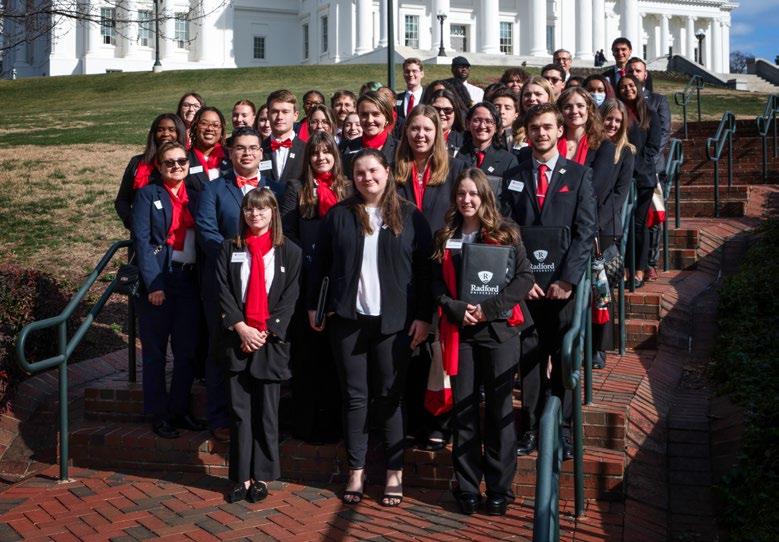
Looking to the future
Over the past 25 years, Advocacy Day has proven to be far more than just a trip to Richmond. It’s clear that the event has become a big part of Radford University’s commitment to student engagement and experiential learning. By sending students to speak directly with lawmakers, Radford ensures that the voices of those most affected by policy decisions are heard. The alumni stories illustrate how impactful the experience can be. Whether it’s sparking an interest in government, as it did for Colleen McNickle, or providing a springboard to a successful career, like it did for George Mendiola Jr., Advocacy Day leaves a lasting impression.
As Radford University continues to send students to the state capital year after year, the legacy of Advocacy Day grows stronger. And with each new group of students, the university’s message to lawmakers in Richmond remains clear: Radford matters, and its students are ready to make a difference.










